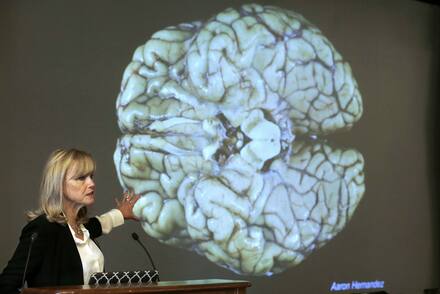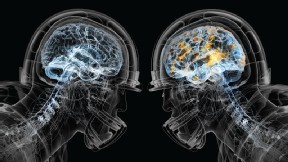
Chronic traumatic encephalomyelitis (CTEM) is a chronic brain disease caused by repeated head injuries. It has been linked to the onset of dementia, as well as other symptoms like paranoia, irritability, aggression, and suicidal thoughts. The term CTE is not used by itself, but instead refers to other related conditions which may not be present. This article addresses CTE, the symptoms of which can be present in people with traumatic brain injury.
The majority of people who suffer from brain injuries are not at risk of developing CTE. However, research has shown that people who have suffered multiple brain injuries do appear to have a high incidence of developing CTE. There are a number of possible reasons for this, but it appears that genetics play a major role in the development of this brain disease.
People who have had repetitive brain injuries in a single setting are often more likely to develop CTE than those who have not. This could be a result of genetic factors, but it may also be a result of long-term exposure to brain-damaging substances in their environment. For example, people with histories of military sexual assault, as well as people who were abused as children, are at greater risk of developing CTE. Researchers have found a direct correlation between the amount of head trauma suffered by a person and the likelihood that he or she will develop this condition. The more traumatic an injury is, the greater the risk of developing CTE.
While there is no cure for CTE, there are ways to reduce the long-term effects of brain damage. A good first step is to try to determine the cause of your CTE. If you think it is caused by a traumatic brain injury, seek immediate medical attention. If you think your CTE may be the result of something else, check with your doctor about the possible symptoms or prevention of CTE.

Because people with CTE often have a history of mental health problems, it is important to seek help. Many people with CTE report loss of memory and concentration. If you experience these symptoms talk to your doctor about your mental health. Your doctor can identify the underlying mental health problems that may have been contributing to your CTE symptoms. They can help you determine if you need medical attention or if they find that you are suffering from CTE due to another health problem.
You may feel like you are suffering from CTE because you feel numbness or tingling in your body. These feelings can be caused by various reasons. Repetitive head injuries are a common cause. Other CTE symptoms include memory loss, irritability, aggression, depression, impulsivity, anger, mood swings, irritability, depression, decreased concentration, and personality changes. If these symptoms persist, talk to your doctor about your concerns. Your doctor can rule out other health problems that may be causing your symptoms.
Symptoms of CTE may vary, so it is important to discuss your concerns with your physician or doctor. Your doctor may recommend that you talk to a psychologist or psychiatrist to help you better understand your symptoms. They may be able to suggest treatments that can help you cope with your symptoms. Cognitive behavioral therapy is often recommended, along with medication to treat depression and/or other mental illnesses that may be causing your symptoms.
If you notice any of the above symptoms in your life, you should discuss this with your doctor. If you notice these symptoms in conjunction with any behavior that you do not think is normal, then contact your doctor. If you suspect CTE as the cause of your symptoms, you may want to consider seeking treatment right away. Your physician may be able to determine the cause of your symptoms and help you with a plan for treatment.